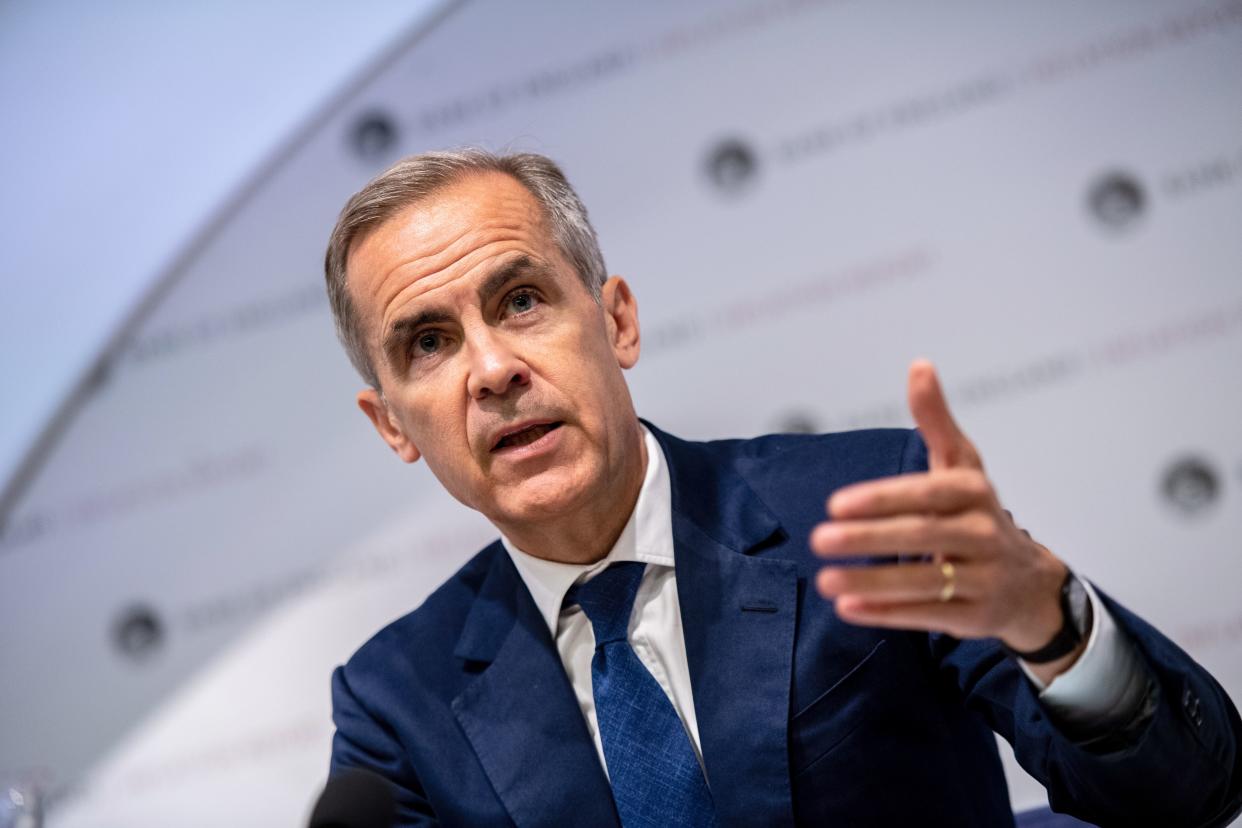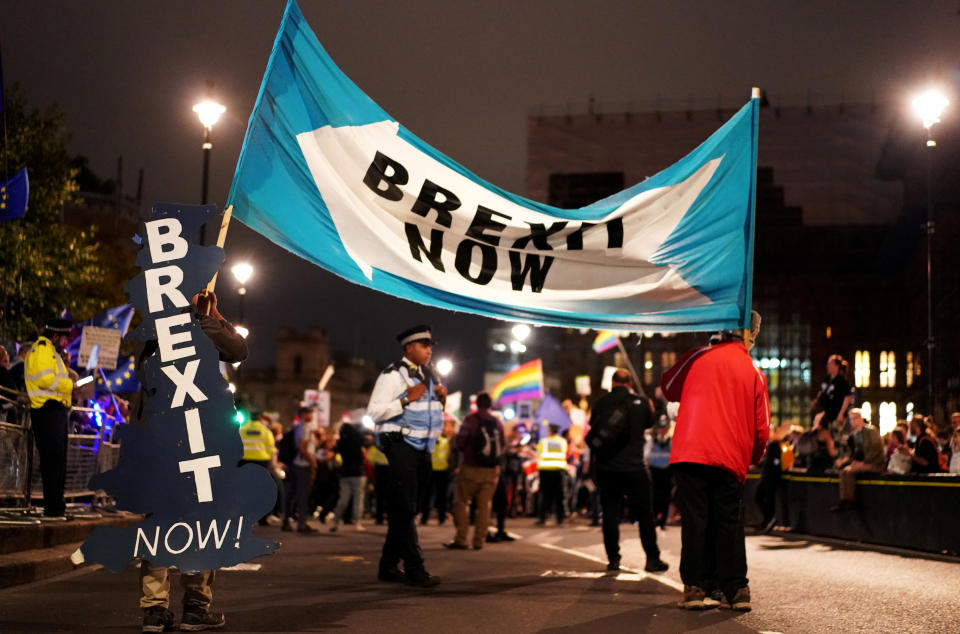Worst case scenario Brexit has improved, Bank of England's Carney says

The Bank of England has revised its forecasts for the possible impact of a “worst case scenario” Brexit, saying exiting the EU without a deal is likely to be less damaging than previously thought.
Governor Mark Carney told MPs on Wednesday preparations for a possible no-deal Brexit so far this year have lessened the likely economic impact of falling out of the EU without a deal or a transition period.
“The impact of that has been to reduce, in our judgment, the worst case scenario,” Carney told MPs on the Treasury Select Committee.
Modelling done by the Bank of England and published last November predicted an 8% decline in GDP, unemployment rising to 7.5%, and a rise in inflation to 6.5% under a no-deal Brexit.
Wednesday’s scenario, published in a letter to the committee, said the UK would likely see a 5.5% decline in GDP, a rise in unemployment to 7%, and inflation rising to 5.25%.
READ MORE: Tories announce £13.8bn spending spree despite Brexit
While these outcomes are less severe than those predicted in November, it still represents a significant shock to the UK economy. Unemployment currently stands at 3.9% and inflation is running at 2.1%.
“In the event of no-deal, it would be likely that the economy would slow, the exchange rate would fall further and inflation would rise,” Carney told MPs on Wednesday. “There are substantial uncertainties about the orders of magnitude for those factors.”
He said a delay to Brexit, as is being proposed by opposition MPs in parliament, would likely lessen the impact of no-deal even further.
“There is more preparation that can be done… it stands to reason if there was more time there would be more preparation,” the governor said.
The Bank warned in November that food prices would rise as much as 10% if the UK fell out of the EU with no deal on future trading arrangements.
Asked about that prediction by Labour MP John Mann, Carney said the lower-than-expected tariffs published by the government earlier this year mean the Bank now believes prices would rise by between 5-6%.
Carney stressed to MPs that all these numbers were the result of modelling for the worst case scenario and were not forecasts.

“These scenarios are worst case scenarios, they’re not the most likely scenarios,” the governor said.
John Mann MP, the chair of the Treasury Select Committee, asked Carney if the Bank of England would intervene in currency markets if there was a sharp fall in the pound after Brexit.
Carney effectively ruled out action from the central bank to support the pound, saying that sterling would need to adjust to reflect the new international trading arrangements in the wake of Brexit.
“The bank has never intervened for monetary policy purposes,” Carney said. “We have to recognise that this situation — Brexit whatever form it takes — will represent a real adjustment to the economy for a period of time.”
Carney appeared in front of the Treasury Select Committee on Wednesday to answer questions about the Bank of England’s latest inflation report and the UK’s economic relationship with the EU.

